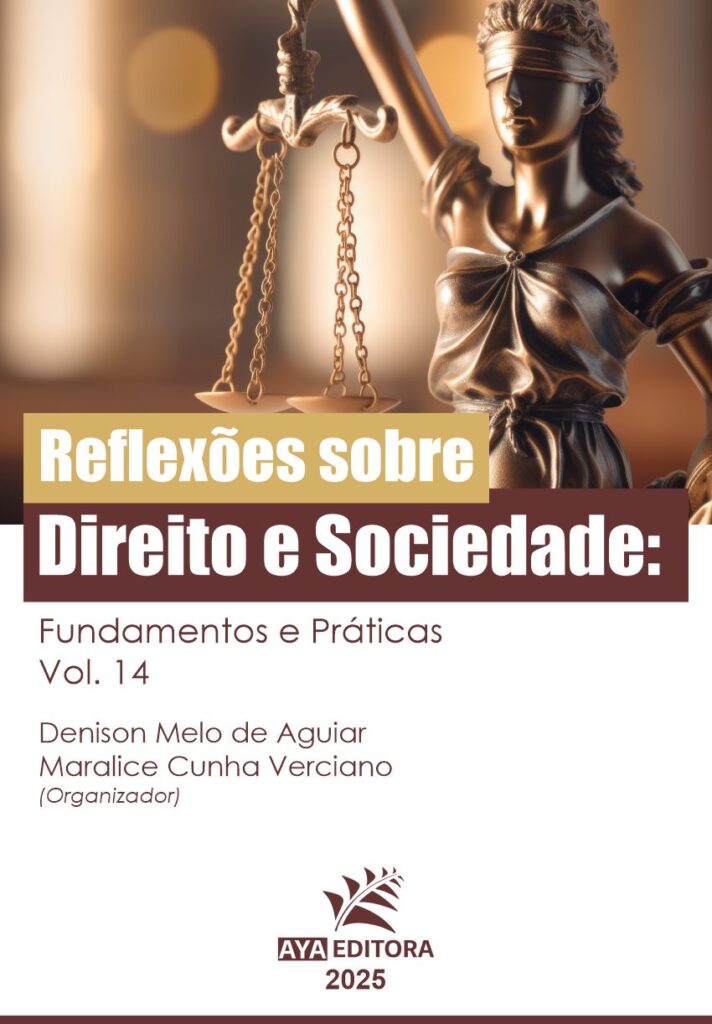
Escusas Absolutórias e a Lei Maria da Penha: O Conflito Aparente entre o Instituto Legal em Crimes de Violência Doméstica e Familiar Contra a Mulher
Justificatory Excuses and the Maria da Penha Law: The Apparent Conflict Between the Legal Institute and Crimes of Domestic and Family Violence Against Women
Autora:
Josilene de Souza Silva
ISBN (Livro):
978-65-5379-765-9
DOI (Livro):
10.47573/aya.5379.3.1
DOI (Capítulo):
10.47573/aya.5379.3.1.1
N° páginas:
Pages
Formato:
Livro Digital (PDF)
Publicado em:
05-05-2025
Licença:
Resumo
O presente estudo analisa o conflito jurídico entre a aplicação das escusas absolutórias previstas no artigo 181 do Código Penal Brasileiro e os princípios da Lei n.º 11.340/2006 (Lei Maria da Penha), especialmente no contexto da violência patrimonial doméstica contra a mulher. As escusas absolutórias, ao isentarem de pena certos crimes patrimoniais cometidos entre familiares, entram em tensão com os objetivos de proteção integral, responsabilização do agressor e erradicação da violência de gênero propostos pela Lei Maria da Penha. A pesquisa, fundamentada em doutrina, jurisprudência e tratados internacionais de direitos humanos, evidencia a inadequação da aplicação irrestrita desse instituto penal nos casos de violência doméstica, por enfraquecer a proteção à mulher e perpetuar a impunidade. Ao final, defende-se a necessidade de interpretação restritiva das escusas absolutórias, bem como a urgência de reforma legislativa que explicite sua inaplicabilidade nos crimes patrimoniais praticados em contextos de violência de gênero, promovendo uma harmonização normativa alinhada à dignidade da mulher e aos direitos fundamentais.
Palavras-chave: escusas absolutórias; violência patrimonial; Lei Maria da Penha; isenção de pena; Convenção de Belém do Pará.
Abstract
This study analyzes the legal conflict between the application of the absolute defenses provided for in Article 181 of the Brazilian Penal Code and the principles of Law No. 11.340/2006 (Maria da Penha Law), especially regarding domestic patrimonial violence against women. These defenses, which exempt from punishment certain property crimes committed among family members, conflict with the objectives of integral protection, offender accountability, and the eradication of gender-based violence outlined by the Maria da Penha Law. The research, based on doctrine, jurisprudence, and international human rights treaties, highlights the inadequacy of unrestricted application of this penal institute in cases of domestic violence, as it undermines the protection of women and perpetuates impunity. Ultimately, the study advocates for a restrictive interpretation of absolute defenses and urges legislative reform to explicitly state their inapplicability in property crimes committed in contexts of gender violence, thereby aligning the legal framework with women’s dignity and fundamental rights.
Keywords: absolute defenses; patrimonial violence; Maria da Penha Law; gender; penalty exemption; women’s protection.
Ler On-line

